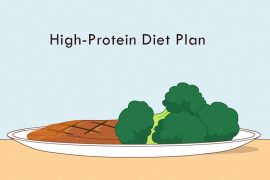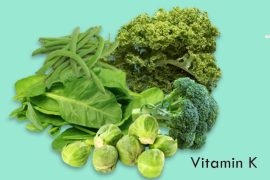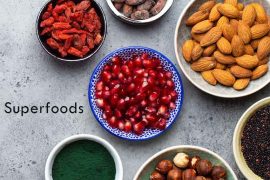Air pollution in the Delhi NCR and surrounding regions is a growing concern as air quality continues to deteriorate. While it’s advisable to limit outdoor exposure during peak pollution hours, it’s not always possible to completely avoid the adverse effects of toxic air. This pollution can have severe consequences on the lungs, brain, heart, and overall health. The World Health Organization (WHO) has identified air pollution as a major environmental health risk, contributing to millions of deaths from conditions like lung cancer, heart disease, and respiratory infections.
To mitigate the damaging effects of pollution, adopting specific dietary measures can be beneficial. A well-balanced diet rich in antioxidants, vitamins, and omega-3 fatty acids can help counteract pollution-induced harm to some extent. Including foods such as fruits, vegetables, nuts, seeds, and sources of omega-3 fatty acids like fish and flaxseeds can provide essential nutrients to support the body’s defense against the oxidative stress caused by pollutants. Staying hydrated and making use of indoor exercise options on highly polluted days are additional steps individuals can take to protect their health.
Addressing air pollution as a public health concern is essential, and personal measures to minimize exposure and support the body’s resilience through nutrition are part of a multi-faceted approach to combat this pressing issue.
Foods That Battle Pollution:
Combatting the harmful effects of air pollution through diet is essential, and including specific food groups can help. Dr. Dua suggests the following foods to mitigate pollution’s impact:
1. Vitamin A:

To combat the effects of pollution, incorporating dietary sources of vitamin A is essential. Vitamin A, primarily found in animal products like milk, eggs, and liver, as well as fortified foods, plays a crucial role in countering pollution’s adverse effects. Additionally, including orange and yellow fruits such as carrots, mangoes, and pumpkins, which contain carotenoids, can further support your body in its fight against the harmful impact of pollution on health.
2. Vitamin D:

Vitamin D is a crucial nutrient with a role in calcium and phosphorus metabolism. Maintaining adequate vitamin D levels is associated with improved asthma control in adults with asthma. While sunlight exposure is a natural source of vitamin D, many individuals today have low indoor vitamin D levels. Therefore, supplementation is often necessary to ensure that vitamin D levels remain within the normal range, effectively supporting asthma management and overall health.
3. Vitamins C and E:
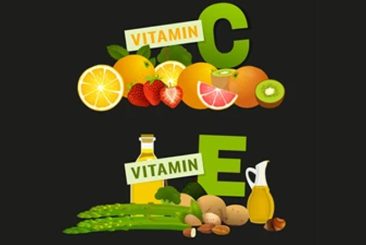
Vitamins C and E are essential nutrients, and their intake is crucial to support respiratory health. Studies, both observational and preclinical, have indicated that low levels of Vitamin C and Vitamin E are linked to a higher prevalence of asthma. Therefore, it is imperative to include foods rich in these vitamins in your diet. Citrus fruits such as oranges and guavas are excellent sources of vitamin C, while vitamin E, along with omega-3 fatty acids, can be found in oils like soybean and mustard oils, as well as in green leafy vegetables and nuts. Including these foods in your diet can help maintain adequate levels of these vitamins and support respiratory well-being.
4. Black pepper:
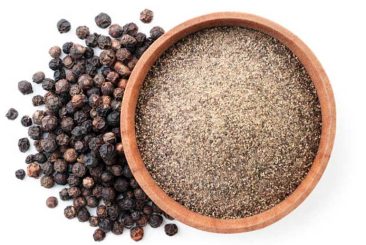
Including black pepper in your diet is a valuable practice, particularly when consuming turmeric. The combination of turmeric and black pepper can enhance the bioavailability of curcumin, a phytochemical found in turmeric. Curcumin has several health-promoting properties, but it is not efficiently absorbed by the body when consumed on its own. Black pepper contains piperine, a compound that can significantly improve the absorption of curcumin. Therefore, incorporating black pepper when consuming turmeric can boost the effectiveness of curcumin in your body and maximize its potential health benefits.
5. Omega-3 fatty acids:

Incorporating omega-3 fatty acids into your diet is not only beneficial for heart health but also plays a crucial role in protecting your body against the adverse effects of pollution. Omega-3 rich oils, found in sources like fatty fish, flaxseeds, and walnuts, offer anti-inflammatory properties that can help mitigate the impact of environmental pollutants on your health. Additionally, adopting a Mediterranean diet, renowned as one of the healthiest dietary patterns, can promote overall well-being. This diet places an emphasis on whole grains, a diverse range of fruits and vegetables, balanced meals, and restricts the consumption of processed and instant foods, providing a nutritious and protective approach to combat pollution-induced health concerns.
6. Turmeric:
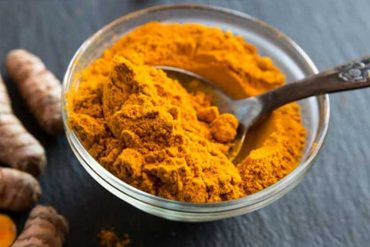
Turmeric, enriched with curcumin, is a potent natural remedy with remarkable health benefits. Curcumin, the phytochemical present in turmeric, possesses strong anti-inflammatory, anti-tumor, antifungal, and antioxidant properties. Incorporating curcumin into your diet can contribute to protection against conditions such as pulmonary fibrosis and cancer. It’s important to exercise moderation, as even a teaspoon of turmeric can be sufficient to harness its therapeutic potential without overdoing it.
Additionally, adopting a Mediterranean diet can be a healthy choice, focusing on whole grains, a variety of fruits and vegetables, balanced meals, and limiting processed and instant foods. Maintaining a healthy weight is crucial for managing asthma and reducing vulnerability to pollution-related health problems. These dietary choices can help support your body’s resilience against the adverse effects of air pollution.
Disclaimer:
The information contained in this article is for educational and informational purposes only and is not intended as a health advice. We would ask you to consult a qualified professional or medical expert to gain additional knowledge before you choose to consume any product or perform any exercise.







